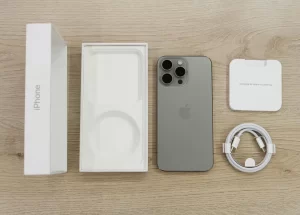Your IP address is like your digital fingerprint on the internet. It reveals information about your location, device, and online activity to anyone who can access it. This can expose you to various risks, such as unwanted ads, tracking, and hacking. Fortunately, there is a way to hide your IP address and protect your privacy and security online: using a VPN.
In this blog post, we will explain what a VPN is and how it works to conceal your IP address. We will also provide a step-by-step guide on how to set up and use a VPN on your device. Finally, we will share some additional tips on how to enhance your online privacy and security.
Contents
ToggleThe Importance of Hiding Your IP Address
Before we dive into how to hide your IP address with a VPN, let’s first understand what an IP address is and why it matters.
Understanding the IP address
An IP address is a unique numerical identifier that is assigned to every device that connects to the internet. It consists of four sets of numbers separated by dots, such as 192.168.1.1. An IP address serves two main purposes: identifying the device and locating it on the network.
Every time you visit a website, send an email, or use an online service, your IP address is transmitted along with your request. This allows the server to know where to send the response and how to communicate with your device.
Risks of not hiding your IP address
While an IP address is essential for the functioning of the internet, it also poses some threats to your online privacy and security. Here are some of the risks of not hiding your IP address:
Targeted ads: Advertisers can use your IP address to track your browsing history, preferences, and behavior. They can then show you personalized ads based on your interests and habits. This can be annoying and intrusive, especially if you value your online privacy.
Location tracking: Your IP address can reveal your approximate geographical location, such as your country, city, and zip code. This can be used by websites and services to customize their content and prices based on your location. For example, some websites may offer different versions or languages depending on where you are. Some services may charge different fees or offer different features based on your location. This can limit your access to information and opportunities online.
Hacking attempts: Your IP address can also expose you to cyberattacks from hackers who want to steal or damage your data. Hackers can use your IP address to scan for vulnerabilities in your device or network. They can then exploit these weaknesses to launch malware, ransomware, or phishing attacks. These attacks can compromise your personal information, financial accounts, or identity.
Benefits of hiding your IP address
As you can see, there are many reasons why you would want to hide your IP address when browsing the internet. Here are some of the benefits of doing so:
Anonymity: By hiding your IP address, you can prevent websites and services from identifying and tracking you online. You can browse the web without leaving any traces or revealing any personal information. You can also avoid censorship and surveillance from governments or ISPs who may monitor or restrict your online activity.
Bypassing geo-restrictions: By hiding your IP address, you can also access content and services that are not available in your region. You can change your virtual location by using an IP address from another country or region. This way, you can unblock websites and services that are otherwise blocked or restricted due to licensing agreements or legal issues.
Protecting sensitive information: By hiding your IP address, you can also safeguard your data from hackers and cybercriminals who may try to intercept or manipulate it. You can encrypt your internet connection and prevent anyone from snooping on or tampering with your traffic. You can also secure your online transactions and communications from prying eyes.
Introducing VPNs
Now that you know why hiding your IP address is important, let’s see how you can do it with a VPN.
What is a VPN?
A VPN stands for Virtual Private Network. It is a service that creates a secure and encrypted connection between your device and the internet. A VPN works by routing your traffic through a remote server that acts as an intermediary between you and the web.
When you use a VPN, you connect to the internet through the VPN server instead of directly through your ISP (Internet Service Provider). This way, you can hide your real IP address from the websites and services you visit. You also encrypt your data so that no one can see or access it.
How a VPN hides your IP address
A VPN hides your IP address by assigning you a different IP from its server location. For example, if you connect to a VPN server in France, you will get a French IP address. This means that the websites and services you visit will think that you are in France, not in your actual location.
By using a VPN, you can mask your IP address and change your virtual location as often as you want. You can choose from hundreds or thousands of servers around the world, depending on the VPN service you use. You can also switch between servers easily and quickly.
Choosing the right VPN
Not all VPNs are created equal. Some VPNs may offer better features, performance, and security than others. Some VPNs may also have shady practices, such as logging your data, selling your information, or injecting ads. Therefore, it is important to choose a reliable and trustworthy VPN service that meets your needs and expectations.
Here are some tips on how to choose the right VPN:
Encryption protocols: Look for a VPN that uses strong encryption protocols, such as OpenVPN, IKEv2, or WireGuard. These protocols ensure that your data is encrypted and secure from hackers and snoopers.
Server locations: Look for a VPN that has a large and diverse network of servers around the world. This will give you more options and flexibility to change your IP address and access geo-restricted content and services.
Customer reviews: Look for a VPN that has positive and honest customer reviews from real users. This will help you get a sense of the quality, reliability, and reputation of the VPN service.
Customer support: Look for a VPN that has responsive and helpful customer support. This will help you resolve any issues or questions you may have while using the VPN service.
Step-by-Step Guide to Using a VPN to Hide Your IP Address
Now that you know what a VPN is and how to choose one, let’s see how to use it to hide your IP address. Here is a step-by-step guide on how to set up and use a VPN on your device.
Setting up a VPN
The first step to using a VPN to hide your IP address is setting up a VPN on your device. The exact process may vary depending on the device and the VPN service you use, but here are some general steps to follow:
Choose a VPN service that suits your needs and preferences. You can use the tips we provided in the previous section to help you select a reliable and trustworthy VPN service.
Download the VPN client from the official website of the VPN service or from a trusted source. Avoid downloading from third-party websites or app stores that may contain malware or viruses.
Install the VPN client on your device by following the instructions provided by the VPN service. You may need to grant some permissions or accept some terms and conditions during the installation process.
Create an account with the VPN service if required. You may need to provide some personal information, such as your email address or payment details, depending on the type of subscription you choose.
Activate your account by verifying your email address or entering a code sent by the VPN service.
Configuring the VPN
The next step to using a VPN to hide your IP address is configuring the VPN on your device. The exact process may vary depending on the device and the VPN service you use but here are some general steps to follow:
Select a server location that you want to connect to. You can choose from the list of available servers provided by the VPN service.
You can also use the auto-connect feature that automatically selects the best server for you based on your location and speed.
Adjust the settings for optimal security and performance. You can customize the encryption protocol, the kill switch, the DNS leak protection, and other features according to your preferences and needs.
You can also check the VPN status, speed, and data usage on the VPN client interface.
Enable the VPN connection by clicking on the connect button or toggling the switch. You should see a confirmation message or a green icon indicating that you are connected to the VPN server.
Connecting to the VPN
The third step to using a VPN to hide your IP address is connecting to the VPN on your device. The exact process may vary depending on the device and the VPN service you use, but here are some general steps to follow:
Launch the VPN client on your device and log in with your account credentials if required.
Follow the steps we provided in the previous section to select a server location and configure the VPN settings.
Wait for a few seconds until the VPN connection is established. You should see a notification or a symbol on your device indicating that you are connected to the VPN server.
Testing the VPN
The fourth step to using a VPN to hide your IP address is testing the VPN on your device. The exact process may vary depending on the device and the VPN service you use, but here are some general steps to follow:
Open your web browser and visit an online IP address checker tool, such as [WhatIsMyIPAddress] or [IPLeak]. These tools will show you your current IP address and location, as well as other information about your device and network.
Compare the results with your original IP address and location before using the VPN. You should see a different IP address and location that match the VPN server you selected. This means that your IP address is successfully hidden by the VPN.
If you see your original IP address or location, or any other discrepancies, it means that your IP address is not hidden by the VPN. This could be due to a number of reasons, such as a faulty VPN connection, a DNS leak, or a WebRTC leak. You should try reconnecting to the VPN server, changing the server location, or contacting the VPN customer support for assistance.
Troubleshooting common issues
The fifth and final step to using a VPN to hide your IP address is troubleshooting common issues that may arise during VPN setup or usage. The exact process may vary depending on the device and the VPN service you use, but here are some general steps to follow:
If you have trouble connecting to the VPN server, check your internet connection, firewall settings, antivirus software, and router configuration. Make sure that nothing is blocking or interfering with your VPN connection. You can also try switching to another server location or protocol.
If you experience slow speed or poor performance while using the VPN, check your bandwidth usage, network congestion, server load, and distance from the server. Make sure that nothing is slowing down or throttling your internet connection. You can also try switching to another server location or protocol.
If you encounter any errors or bugs while using the VPN client, check for updates, restart your device, reinstall the VPN client, or contact the VPN customer support. Make sure that your device and software are compatible and up to date with the latest versions.
Additional Tips for Online Privacy and Security
Using a VPN is one of the best ways to hide your IP address and protect your online privacy and security. However, it is not enough by itself. You also need to take some additional measures to enhance your online privacy and security. Here are some tips:
Regularly update your VPN: Make sure that you always use the latest version of your VPN software. This will ensure that you benefit from the latest security enhancements and bug fixes. You can check for updates manually or enable automatic updates on your VPN client settings.
Use strong passwords: Use unique, complex passwords for all your online accounts and services. Avoid using common or easy-to-guess passwords, such as “123456,” “password,” or “qwerty.” You can use a combination of letters, numbers, symbols, and cases to create strong passwords. You can also use password managers to generate and store passwords securely and conveniently.
Beware of phishing attempts: Phishing is a type of cyberattack that tries to trick you into revealing your personal information or credentials by impersonating legitimate websites or services. For example, you may receive an email that looks like it comes from your bank or social media account asking you to verify your details or click on a link. However, if you do so, you may end up giving away your information or downloading malware. To avoid phishing attempts, always check the sender’s address, spelling, grammar, and logo. Do not click on any links or attachments that look suspicious or unfamiliar. Do not enter your information on any websites that do not have a secure connection (https) or a valid certificate.
Enable two-factor authentication (2FA): 2FA is a feature that adds an extra layer of security when accessing your online accounts and services. It requires you to enter a code or a token that is sent to your phone or email after entering your password. This way, even if someone steals or guesses your password, they cannot access your account without the code or token. To enable 2FA, go to your account settings and look for the security or privacy options. You can also use apps like Google Authenticator or Authy to generate codes or tokens.
Regularly update your devices and software: Make sure that you always use the latest versions of your operating system, browser, and applications. This will ensure that you benefit from the latest security patches and fixes. You can check for updates manually or enable automatic updates on your device and software settings.
Conclusion
Hiding your IP address is a smart and simple way to protect your online privacy and security. By using a VPN, you can mask your IP address and change your virtual location as often as you want. You can also encrypt your internet connection and prevent anyone from snooping on or tampering with your traffic.
In this blog post, we have explained what a VPN is and how it works to hide your IP address. We have also provided a step-by-step guide on how to set up and use a VPN on your device. Finally, we have shared some additional tips on how to enhance your online privacy and security.











